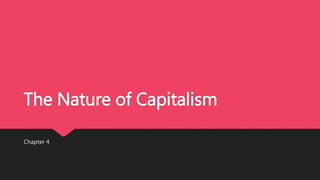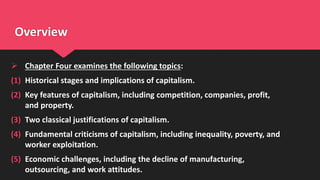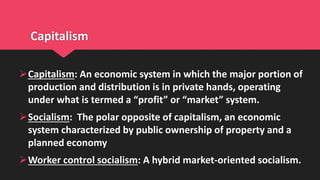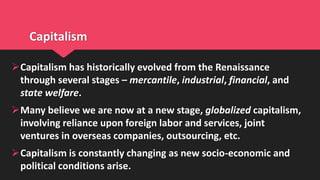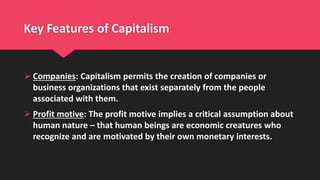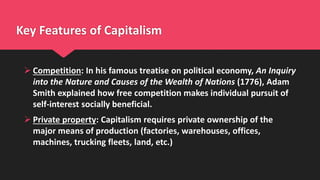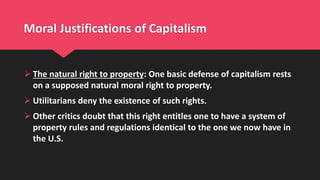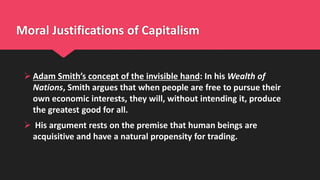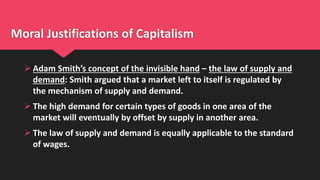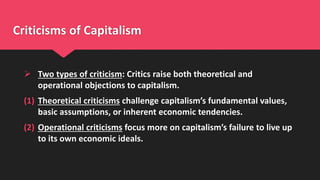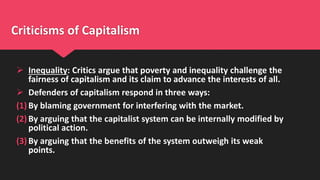Chapter 4 of 'The Nature of Capitalism' explores historical stages of capitalism and its key features such as competition, profit motive, and private property, while addressing moral justifications and criticisms related to inequality and exploitation. It also highlights current economic challenges like the decline of manufacturing, outsourcing, and shifting work attitudes. The document ultimately questions whether capitalism enhances or tarnishes societies, emphasizing both its benefits and moral dilemmas.
